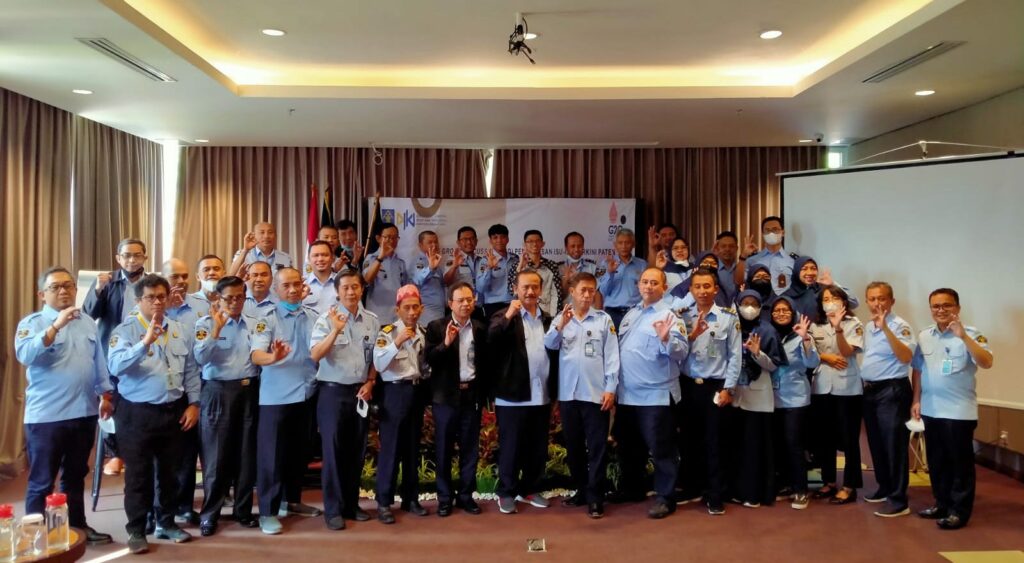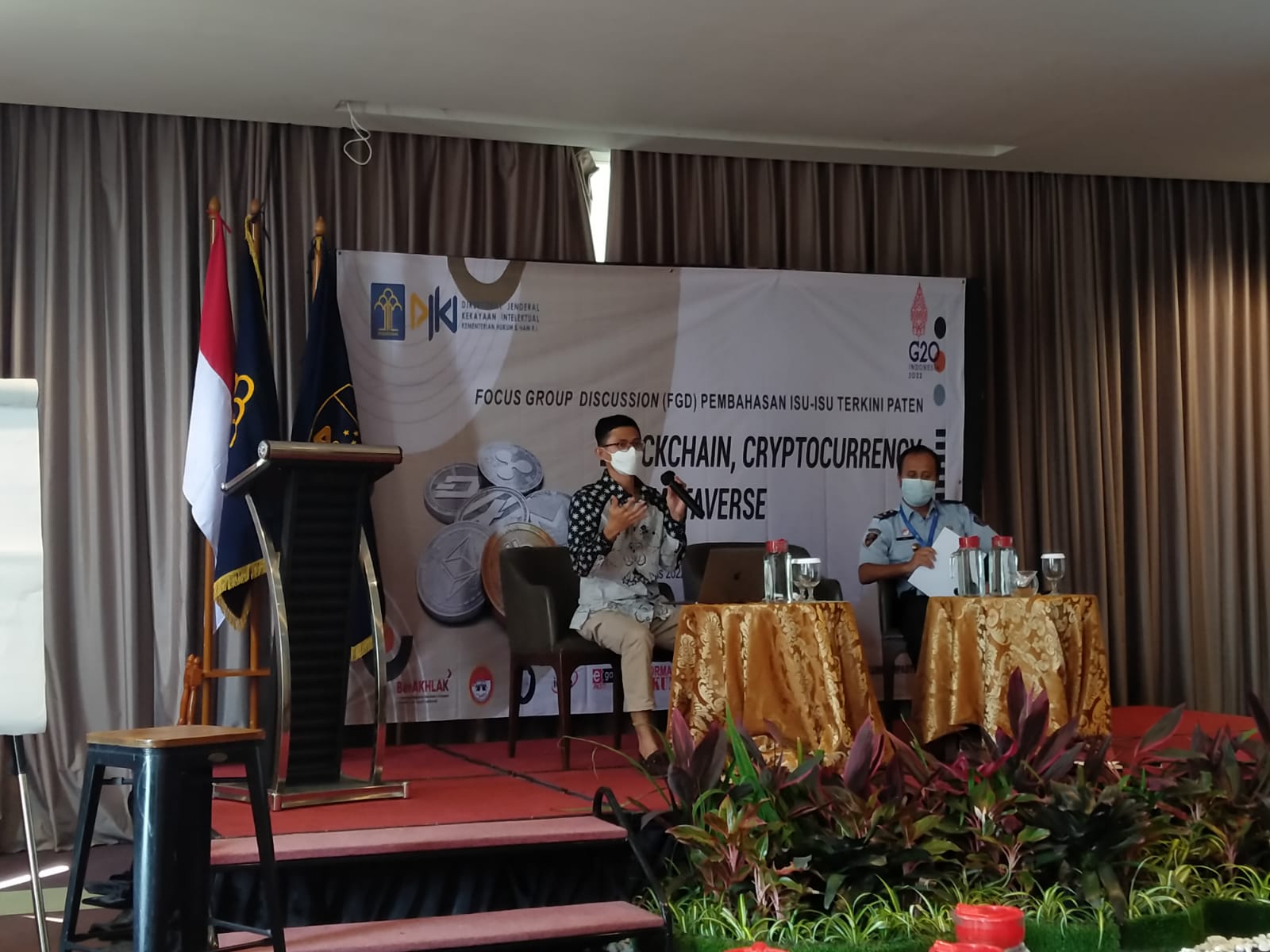Today blockchain technology and its various applications such as cryptocurrency (cryptocurrency) are increasingly popular in the world, including in Indonesia. The high level of public curiosity is also accompanied by the proliferation of applications offered by blockchain developers both in the form of coins and non-fungible tokens (NFT). This enthusiasm has also resulted in an increase in patent applications for blockchain-based applications in the world and Indonesia. However, what is still an issue is whether these blockchain-based applications can be patented.
Lecturer and expert on blockchain and legal technology, Faculty of Computer Science, University of Indonesia (Fasilkom UI), Dr. Panca Hadi Putra, B.Sc., S.H., M.Bus. in the Focus Group Discussion (FGD) of the Directorate General of Intellectual Property (DJKI) Ministry of Law and Human Rights of the Republic of Indonesia (Kemenkumham RI) entitled “Current Issues Related to Patents: Blockchain, Cryptocurrency & Metaverse” stressed that caution is needed in issuing patents for blockchain-based applications. There are at least two things that patent analysts need to pay attention to in processing blockchain technology.
“First, referring to how the blockchain works, we need to remember that blockchain is a software or computer program that contains a series of algorithms. In Article 4 of Law no. 13 of 2016 regarding patents, it is stated that an invention or invention does not include a method that only contains a computer program,” said Dr. Panca.
Furthermore, he also conveyed that the issue of blockchain patentability is also being discussed internationally. Dr. Panca added, “in the United States (US), the patentability of this blockchain is also being questioned. Examples in jurisprudence Mayo Collaborative Services vs. Prometheus Laboratories, where the US Supreme Court provides guidance on whether something can be patented. Referring to these guidelines, computer programs whose algorithms resemble laws of nature or abstract ideas cannot be patented. If an algorithm is classified as laws of nature or abstract ideas then it is a basic tool of scientific and technological work. If the algorithm were patented, it would be feared that it could stifle innovation rather than encourage it. Technically, in the context of blockchain technology, patenting the algorithm means protecting computer programs that use peer-to-peer networks through a proof-of-work method to publicly record transactions.”

In consideration of blockchain technology patents, this doctor of computer science who is also a law graduate said that patent applicants must be able to demonstrate that their proposal has sufficient evidence to be considered a new invention. “The second thing to note is that the proposed invention must be truly new, not a new use for a product or use of an existing, disclosed or known technology. This is in accordance with the principles in Articles 3 and 4 of Law no. 13 of 2016 regarding patents and also jurisprudence Mayo Collaborative Service vs. Prometheus. This blockchain technology was first introduced in detail in a published paper by Satoshi Nakamoto in 2008. Blockchain technology is very well known and many other scientific papers after Nakomoto have reviewed it. Besides that, courses in universities around the world even discuss in detail the algorithms and code behind this technology,” concluded said Dr. Panca.

